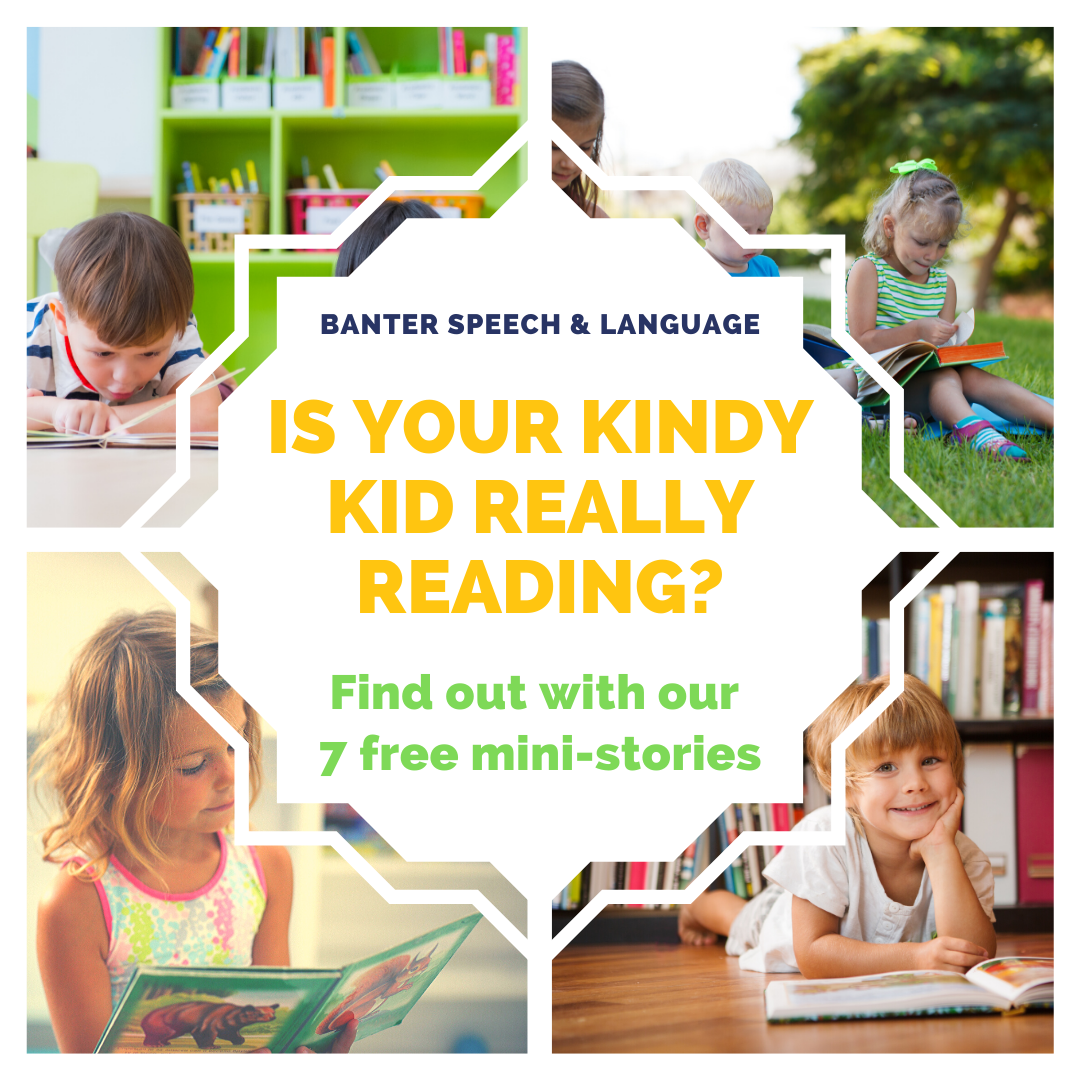Regardless of which letter-sound sequence you use to introduce letter-sound links and teach children early blending skills, kids in Kindergarten should have mastered the basic alphabetic code by the end of the school year. They should also be able to blend the speech sounds most commonly associated with each letter to form short words, like “bat” and “sit”.
Unfortunately, some children are very good at tricking us into thinking they are better readers than they actually are. For example, some children with good expressive vocabularies and/or oral language structure skills are adept at pretending to read by guessing words from pictures or following simple language patterns (e.g. “I can see a…”, “There’s a…”). This is especially a risk when predictive texts that use repeated carrier phrases and lots of pictures. Other children simply memorise their readers and trick us into thinking they are reading by reciting books back to us on cue like secretaries from the 1950s.
Many children with problems decoding words fly under the radar until around Year 3. Then they are expected to read lots of things without pictures, and are also expected to learn new things – written words they have never seen before – by reading about them. If the child hasn’t learned to decode before Year 3, it takes a huge amount of work to catch up, and the evidence tells us that many kids never catch up.
To give families a reality check on their children’s true basic decoding skills, we have written some free, mini-stories for late Kindy kids (and older kids with reading issues).
They don’t have pictures or follow patterns. Nor are they fine literature by any measure. (If you are after quality literature to enhance your child’s oral language development, check out these links – audiobooks for preschoolers, audiobooks for kids in Kindergarten and Year 1, audiobooks for kids in Years 2-6.)
Instead, these mini-stories are designed for one thing: a basic check whether children can decode real, simple words without guessing from pictures or spotting oral language patterns.
To help us structure the stories, we used the Sounds Write letter-sound sequence and Units for reference. We tweaked it a bit to include some early developing morphemes, including 3S and possessive s. But most children who have finished Kindergarten should be able to read these silly little tales without too much trouble.
If your child struggles to read these tales, she or he might benefit from some more work on letter-sound links and early blending skills to kick-start their true decoding and reading skills.
Related articles:
- Teaching the alphabet to your child? Here’s what you need to know
- Is your child struggling to read? Here’s what works
- Kick-start your child’s reading with speech sound knowledge (phonological awareness)
- How to find out if your child has a reading problem (and how to choose the right treatment approach)
- “I don’t understand what I’m reading” – reading comprehension problems (and what to do about them)
- How to help your school-age child learn new words – the nuts and bolts of how I actually do it in therapy
- The forgotten reading skill: fluency, and why it matters
- What else helps struggling readers? The evidence for “morphological awareness” training
- Dyslexia vs Developmental Language Disorder: same or different, and what do we need to know about their relationship?

Hi there, I’m David Kinnane.
Principal Speech Pathologist, Banter Speech & Language
Our talented team of certified practising speech pathologists provide unhurried, personalised and evidence-based speech pathology care to children and adults in the Inner West of Sydney and beyond, both in our clinic and via telehealth.

